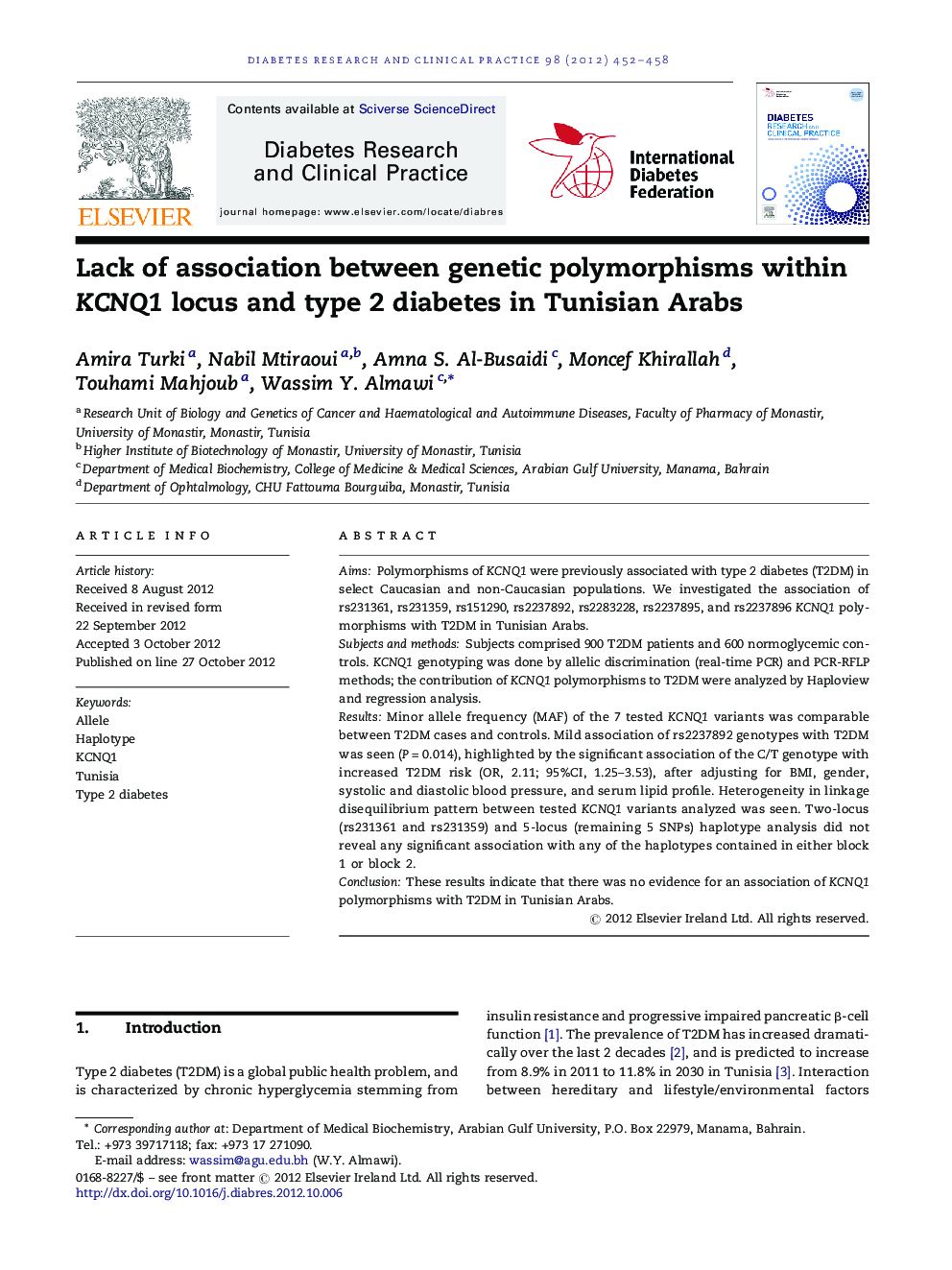| کد مقاله | کد نشریه | سال انتشار | مقاله انگلیسی | نسخه تمام متن |
|---|---|---|---|---|
| 2797082 | 1155634 | 2012 | 7 صفحه PDF | دانلود رایگان |

AimsPolymorphisms of KCNQ1 were previously associated with type 2 diabetes (T2DM) in select Caucasian and non-Caucasian populations. We investigated the association of rs231361, rs231359, rs151290, rs2237892, rs2283228, rs2237895, and rs2237896 KCNQ1 polymorphisms with T2DM in Tunisian Arabs.Subjects and methodsSubjects comprised 900 T2DM patients and 600 normoglycemic controls. KCNQ1 genotyping was done by allelic discrimination (real-time PCR) and PCR-RFLP methods; the contribution of KCNQ1 polymorphisms to T2DM were analyzed by Haploview and regression analysis.ResultsMinor allele frequency (MAF) of the 7 tested KCNQ1 variants was comparable between T2DM cases and controls. Mild association of rs2237892 genotypes with T2DM was seen (P = 0.014), highlighted by the significant association of the C/T genotype with increased T2DM risk (OR, 2.11; 95%CI, 1.25–3.53), after adjusting for BMI, gender, systolic and diastolic blood pressure, and serum lipid profile. Heterogeneity in linkage disequilibrium pattern between tested KCNQ1 variants analyzed was seen. Two-locus (rs231361 and rs231359) and 5-locus (remaining 5 SNPs) haplotype analysis did not reveal any significant association with any of the haplotypes contained in either block 1 or block 2.ConclusionThese results indicate that there was no evidence for an association of KCNQ1 polymorphisms with T2DM in Tunisian Arabs.
Journal: Diabetes Research and Clinical Practice - Volume 98, Issue 3, December 2012, Pages 452–458